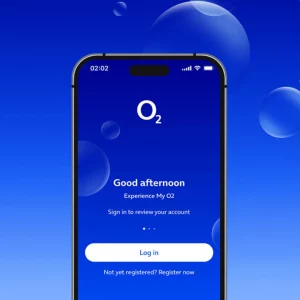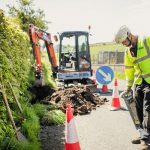Sponsored Links
BT Calls in the Army to Help Deploy its New UK Superfast Broadband Services
Posted: 05th May, 2011 By: MarkJ

 BT Openreach, which is responsible for ensuring that all rival UK ISPs have equality of access to the operators local network, has announced its intention to recruit around 200 ex-Armed Forces personnel to help deliver its super-fast 'up to' 40Mbps FTTC and 100Mbps+ FTTP fibre optic broadband services.
BT Openreach, which is responsible for ensuring that all rival UK ISPs have equality of access to the operators local network, has announced its intention to recruit around 200 ex-Armed Forces personnel to help deliver its super-fast 'up to' 40Mbps FTTC and 100Mbps+ FTTP fibre optic broadband services.The admittedly somewhat unusual move, which will involve hiring men and women that are often perceived as being better at fighting wars and Taliban insurgents than splicing fibre optic cables, could still prove to be a stroke of genius from BT and might also help to tackle the operators backlog of work and resultant delays (example).
The army does quite an impressive job of training its troops and also diverges into many different fields, including various forms of engineering. BT's new personnel can expect to start their jobs this May 2011 and will immediately join the operator's mobile engineering workforce. A little added military precision might prove to be a big bonus.
BT Openreach's CEO, Olivia Garfield, said:
"It’s fantastic that we’ve been able to recruit so many ex-armed services personnel. These people have served their country well and so deserve the chance of full-time employment with a generous reward package. They are highly skilled, motivated and disciplined and have experience of complex engineering tasks in challenging environments.
Our “fast-track” recruitment programme should see the majority of them join us by the end of May and given their experience, we will be able to train them up quickly and get them straight out where we need them."
"It’s fantastic that we’ve been able to recruit so many ex-armed services personnel. These people have served their country well and so deserve the chance of full-time employment with a generous reward package. They are highly skilled, motivated and disciplined and have experience of complex engineering tasks in challenging environments.
Our “fast-track” recruitment programme should see the majority of them join us by the end of May and given their experience, we will be able to train them up quickly and get them straight out where we need them."
David Duffy, MD of Career Transition Partnership (CTP), added:
"To date, Openreach have carried out 202 interviews specifically for Service leavers with 181 subsequently being offered positions. This converts to a 90% success rate at interview and reflects the highly sought after skill-sets, abilities and attitude of those leaving the Armed Forces."
"To date, Openreach have carried out 202 interviews specifically for Service leavers with 181 subsequently being offered positions. This converts to a 90% success rate at interview and reflects the highly sought after skill-sets, abilities and attitude of those leaving the Armed Forces."
It's understood that the service leavers will also receive other benefits, such as grants, allowances, travel warrants, resettlement leave, transition workshops, one-to-one career guidance support, subsidised vocational training support, housing advice, financial briefs and employment support.
Meanwhile BT is currently spending £2.5bn to help make its superfast broadband services available to 66% or more of the UK by 2015. By the end of next year (2012) some 40% of homes in the country will have access to its new services.
Search ISP News
Search ISP Listings
Search ISP Reviews
Latest UK ISP News








Cheap BIG ISPs for 100Mbps+
150,000+ Customers | View More ISPs
Cheapest ISPs for 100Mbps+
Modest Availability | View More ISPs
Latest UK ISP News
Helpful ISP Guides and Tips
Sponsored Links
The Top 15 Category Tags
- FTTP (6724)
- BT (3863)
- Politics (3041)
- Business (2736)
- Openreach (2630)
- Building Digital UK (2490)
- Mobile Broadband (2437)
- FTTC (2132)
- Statistics (2104)
- 4G (2063)
- Virgin Media (1999)
- Ofcom Regulation (1763)
- 5G (1694)
- Fibre Optic (1588)
- Wireless Internet (1583)
Sponsored
Copyright © 1999 to Present - ISPreview.co.uk - All Rights Reserved - Terms , Privacy and Cookie Policy , Links , Website Rules































